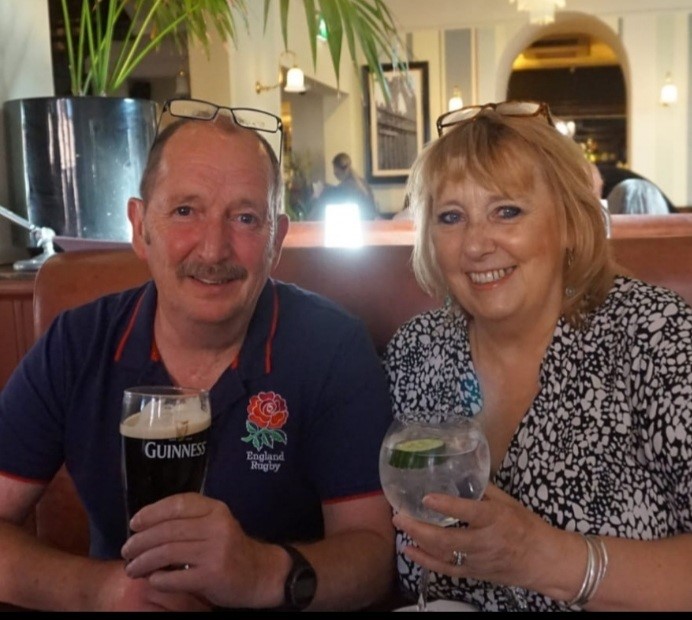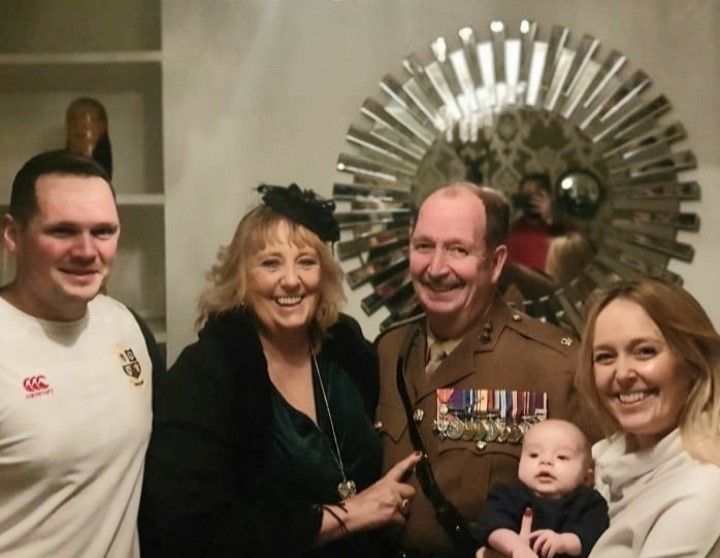Colin’s Story
SEARCH OTHER STORIES
Colin Prentice was enjoying a day at the beach in St Ives with his family over the August bank holiday weekend in 2019, when an undiagnosed brain condition caused him to collapse.
It was the last day of their summer holiday and the dad had just got out of the sea at Porthminster, when he sat down and said ‘my head, my head’ before falling to the ground. A nearby doctor and a nurse, who happened to be on the beach at the time, rushed to help along with the local lifeguards. They tried to stabilise him, but Colin was unresponsive.
A family member had already called 999, and due to the severity of the situation, Cornwall Air Ambulance was tasked to the scene with critical care paramedics Jeremy Griffiths and Thomas Hennessy Jones onboard.
The crew managed to stabilise Colin, opening his airways and monitoring his vital signs, they thought he had suffered a head injury or a neuro problem. Colin’s wife Helen said: “They were brilliant, looking after him and saying, ‘we’re doing our very best’ and that they would look after him.” Due to Colin being so ill, he was airlifted to the Royal Cornwall Hospital in Truro, as it was feared he would not survive the journey to the neurology department at Derriford in Plymouth.
“I just remember they were the nicest people in the most awful situation”, said Helen. “They still found time for me, to make sure I was okay. I can’t speak highly enough of them.”

Colin and wife Helen
Following assessment at Treliske it was found Colin had suffered a subdural hematoma, a serious condition where blood collects between the skull and the brain. Helen said: “The doctors said there was nothing more they could do; he’d had a bleed on the brain and it was too severe. They said to get the children down and that they’d try to keep him alive until they could say their goodbyes. That was the worst phone call I’d ever had to make.”
Colin remained unconscious, but the next morning he moved a finger. On the second day in hospital he had blinked one eye, and on the third he had tried to take a breath for himself. He was then conveyed to Derriford where he continued to make very small improvements over the next week. Colin underwent surgery and was transferred back home to Nottingham, to Leicester, and was then moved to the Defence and National Rehabilitation Centre where he was under their care for 18 months.
Helen said: “If it hadn’t of been for the air ambulance, the speed they got on the scene, that he was able to get to the hospital and stabilised, the work they did on the beach, he wouldn’t be here now. He was so seriously ill, and he wouldn’t have survived without them. He’s my miracle man, he wasn’t supposed to be here.”
Colin spent months learning to walk, talk and write again. He still has a few issues with his short-term memory and has restricted movement of his right arm. He has been medically discharged from his role as a serving Major in the Army.
He said: “Cornwall Air Ambulance can’t be praised highly enough. I wouldn’t be here if it wasn’t for them, as simple as that.”

Colin with his family
Helen added: “If it wasn’t for the donations, people would lose their lives. We were on holiday in St Ives again last year and we saw your crew again came to help someone at the beach. You just can’t put a price on it. He wouldn’t be here without you.”
You can help more patients like Colin by donating to Cornwall Air Ambulance from £3 a month: Donate – Cornwall Air Ambulance (cornwallairambulancetrust.org)